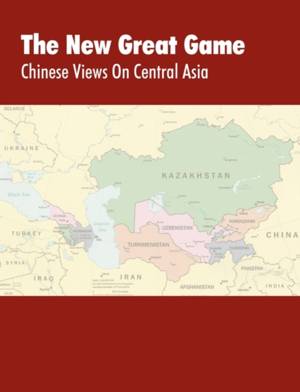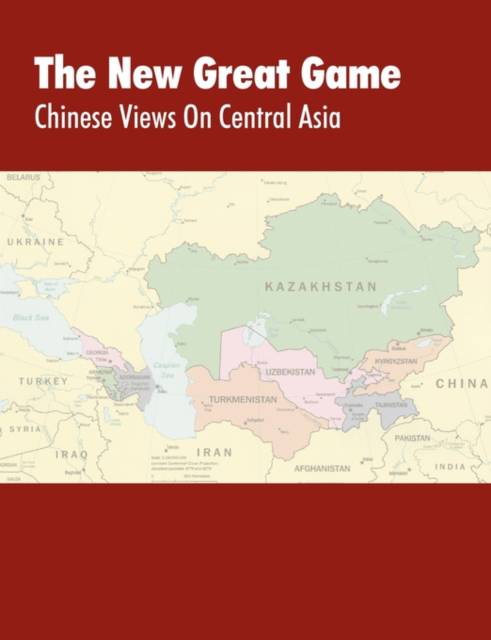
- Afhalen na 1 uur in een winkel met voorraad
- Gratis thuislevering in België vanaf € 30
- Ruim aanbod met 7 miljoen producten
- Afhalen na 1 uur in een winkel met voorraad
- Gratis thuislevering in België vanaf € 30
- Ruim aanbod met 7 miljoen producten
Zoeken
The New Great Game
Chinese Views on Central Asia. Proceedings of the Central Asia Symposium held in Monterey, CA on August 7-11, 2005
Foreign Military Studies Office, Us Army Training and Doctrine Command
Paperback | Engels
€ 38,45
+ 76 punten
Omschrijving
The importance of Central Asia to three major powers the United States, China, and Russia is well understood but not widely recognized or discussed. Involvement in the region by the United States has been spotty and uneven over many years, but since 9.11 has taken on renewed importance in the War Against Terrorists. Russia views the region as its traditional sphere of influence, and the many strong ties between Russia and countries in Central Asia, especially Kazakhstan, reinforce this view. China has had a presence in the region via trade routes for centuries, but has only recently made a concerted effort to apply its influence. Key issues for the area include the following: terrorism/transnational crime/drug trafficking, energy resources (oil and gas), trade, stable governance, border disputes, the role of cooperative security organizations (mainly the Shanghai Cooperation Organization, but there are a score of others), and, particularly, cooperation by the major powers. The August 2005 Central Asian Symposium, held in Monterey California, was a way for the Foreign Military Studies Office (FMSO) to gain a different and uniquely Chinese perspective on the area's problems and potential solutions. The timing and topic of the symposium are important, for China is growing more interested in Central Asia and its resources by the day. The region is less contentious than the Taiwan issue, however, and this factor increased the level of open discussion and value of the symposium dramatically. FMSO invited several top-rank Chinese researchers and analysts to attend the symposium, and also younger analysts/researchers with fresh perspectives on the region.
Specificaties
Betrokkenen
- Auteur(s):
- Uitgeverij:
Inhoud
- Aantal bladzijden:
- 192
- Taal:
- Engels
Eigenschappen
- Productcode (EAN):
- 9781780390475
- Verschijningsdatum:
- 1/08/2005
- Uitvoering:
- Paperback
- Formaat:
- Trade paperback (VS)
- Afmetingen:
- 189 mm x 246 mm
- Gewicht:
- 353 g

Alleen bij Standaard Boekhandel
+ 76 punten op je klantenkaart van Standaard Boekhandel
Beoordelingen
We publiceren alleen reviews die voldoen aan de voorwaarden voor reviews. Bekijk onze voorwaarden voor reviews.











